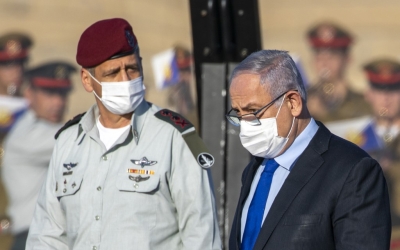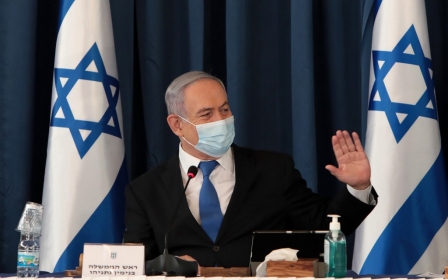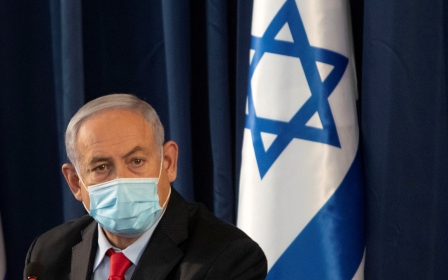Israel's parliament curbs protests with new coronavirus laws
Israel's parliament on Wednesday approved a new set of emergency laws that critics fear would be used to stop protests against Prime Minister Benjamin Netanyahu over his alleged corruption and handling of the coronavirus crisis.
The new law bans Israelis from holding protests more than 1km from their homes, which critics said would be used to stop protests outside Netanyahu's residence.
These new laws also gave the government powers to declare a "special emergency caused by the coronavirus pandemic" for renewable periods of one week.
During that time, the 1km limit on travel would apply to demonstrations. There would also be restrictions on numbers.
These latest measures are part of Israel's second national lockdown, as Covid-19 cases spike across the country. They also came as mass protests calling for Netanyahu's resignation grow.
Opinion polls showed only about a quarter of the public had confidence in the way the prime minsiter had dealt with the pandemic, which had largely subsided during a March-May lockdown.
Hours before the vote, hundreds of Israelis had protested outside parliament, calling the protest limit a blow to democracy.
“What’s the next step? Banning the opposition leader from addressing parliament?” Yair Lapid, who heads the opposition in the Knesset, Israel's legislative body, tweeted about the vote.
Israel's lockdown, which closed schools and limited business operations, was imposed after new Covid-19 cases climbed to around 7,000 a day in a population of 9 million, overtaxing some hospitals.
Netanyahu said that Israel had handled the health crisis relatively well and that he had no political motive in seeking to prevent protests. He denied any wrongdoing in three corruption cases against him.
But with infection rates still high, especially in ultra-Orthodox Jewish neighbourhoods, where social-distancing compliance had been lax, Netanyahu said on Tuesday that lockdown measures, scheduled to last three weeks, might have to be extended for at least a month or longer.
Israel had reported 237,060 infections and 1,528 deaths from the virus.
Middle East Eye delivers independent and unrivalled coverage and analysis of the Middle East, North Africa and beyond. To learn more about republishing this content and the associated fees, please fill out this form. More about MEE can be found here.





